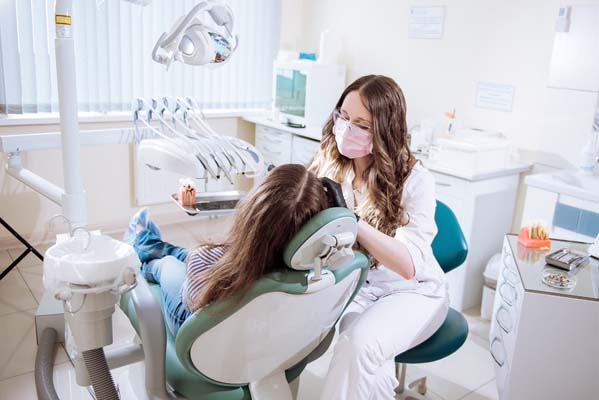4 Services an Emergency Dentist Can Provide

When you have a dental emergency, the first thing you should do is call an emergency dentist. An emergency dentist is trained and experienced in handling dental emergencies. Dental emergencies can be debilitating and even life-threatening.
4 Services provided by an emergency dentist
Many dentists now offer emergency dental treatments in addition to their regular dental treatments. If there is a dental emergency, patients should visit the dental office as soon as possible.
To relieve your discomfort and eradicate the infection, an emergency dentist will prescribe pain relievers, anti-inflammatory medications, and antibiotics. The following are some of the treatments an emergency dentist can provide:
Toothache relief
Tooth pain can suggest different dental issues, and the emergency dentist will need to determine the pain source for appropriate treatment. Pulp infections and items caught between two teeth are two typical causes of toothaches. It is especially vital to visit an emergency dentist if tooth pain occurs abruptly, worsens over time, or is severe. Meanwhile, a cool compress may help relieve some of the pain.
Repair of cracks or chips
Chips and cracks in teeth can occur due to biting down on hard objects, using the teeth for unconventional purposes, or an accident. Chipped or cracked teeth are more common in those who grind or clench their teeth. Patients who have chipped or cracked teeth should get treatment from an emergency dentist. If the tooth breaks, rinse any tooth fragments, place them in a glass of milk or water, and bring them to your emergency dental appointment.
Reinsertion of a loose or knocked-out tooth
Any face trauma that leads to a loose or knocked-out tooth needs prompt dental attention. Patients need to keep a loose tooth in its socket to prevent it from coming out. This is possible by gently chewing down on the tooth. In addition, it is critical to try to find a missing tooth if it has been knocked out.
After finding the lost tooth, patients should only hold it by the crown and clean it. One can save a lost tooth in two ways: first, re-insert it into its socket and bite down on it as if it were a loose tooth. Second, just like tooth pieces from a chipped tooth, one may keep it in a glass of milk or water until they are able to see the dentist.
Treatment of injuries to the soft tissues
The lips, gums, insides of the cheeks, and tongue are all soft tissues in the mouth. If there is an injury to one of these structures, call an emergency dentist for advice on what to do. Some situations may need the use of an emergency dentist, while others may necessitate a trip to the emergency room. Before applying pressure to stop bleeding, patients should wash soft tissue injuries such as lacerations, punctures, and rips with warm water.
In conclusion
The emergency dentist will first take steps to relieve a patient’s pain and bleeding before recommending options to restore the affected teeth. In any case, the earlier you visit the dentist, the better the chances of resolving the issue with minimally invasive treatments.
Request an appointment here: https://mysanjosewillowglendentist.com or call Dental Smiles of Willow Glen at (408) 827-9479 for an appointment in our San Jose office.
Check out what others are saying about our dental services on Yelp: Emergency Dentist in San Jose, CA.
Related Posts
When a sports-related collision or fall occurs, an emergency dentist helps protect teeth, gums, and the jawbone from lasting harm. Dental trauma often looks minor at first, yet hidden cracks or nerve injuries may develop quickly. Acting fast supports comfort now and better outcomes later. Knowing what first steps to take can make all the…
Because you never know when an emergency situation is going to happen, understanding how to handle a dental emergency is important. It could even mean the difference between saving and losing a tooth.Finding out how to stay calm during a dental emergency is one of the most important things you can learn how to do. It…
Talking to your general dentist about your dental anxiety can help start your dental appointment the right way. This condition can prevent you from getting the right dental treatments. Keeping it at bay is possible during the visit. Here are the details on how your general dentist can help relieve your dental anxiety.This is an…
A key part of a general dentist's job is helping patients protect their teeth from damage, wear, and decay. Preventing dental problems can help patients save time, trouble, discomfort, and money. Here is a closer look at how general dentists help patients keep their teeth in good condition.General dentists may provide the following preventive services…
